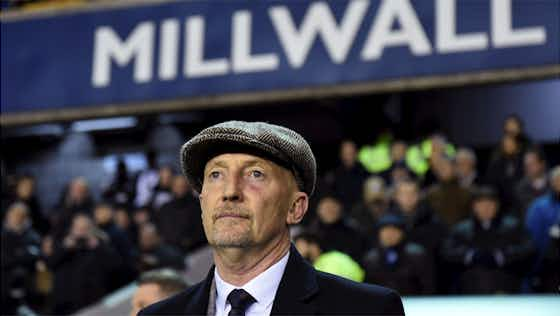Football League World
·9 August 2025
Millwall rolled the dice on £0 striker twice - Lions will wish they hadn't

In partnership with
Yahoo sportsFootball League World
·9 August 2025

Ian Holloway decided to sign Stefan Maierhofer not once, but twice.
Millwall's desperate attempts to avoid relegation in the mid-2010s led to some questionable transfer decisions, but none more surprising than their decision to sign towering striker Stefan Maierhofer not once, but twice as a free agent.
When Ian Holloway arrived at Millwall in January 2014 to replace the sacked Steve Lomas, it's fair to say the Lions were in desperate straits.
Sitting 21st in the Championship table and staring relegation in the face, Holloway needed reinforcements fast.
His solution was Maierhofer - a 31-year-old Austrian striker who had been without a club since leaving FC Köln the previous summer.

Standing at nearly 6ft 9in tall, the Austrian international represented the classic 'big man up front' solution that struggling Championship sides often turn to in desperation.
Holloway was somewhat bullish about his new signing, telling reporters that Millwall would be a "different proposition" with the giant striker in the side.
"Now I've got this big fella, we can work different things off of him," Holloway explained. "When I was at Blackpool I had four strikers who could win headers, so hopefully we'll get some goals from set plays."
Yet Maierhofer's track record in English football probably should have been a red flag. His previous spell in the Premier League with Wolves had been nothing short of disastrous, managing just one goal in ten appearances.

Despite making 11 appearances between March and May 2014, the Austrian managed just two goals - at least it was more than he got in the West Midlands.
His debut came in a 0-0 draw with Charlton, where he played 40 minutes without making any meaningful impact.
While Millwall did ultimately survive relegation - on the final day with a win over Bournemouth - Maierhofer's contribution was minimal. Martyn Woolford scored the only goal that game.

Incredibly, having seen Maierhofer's lack of impact during his first spell, Millwall decided to repeat the experiment. In January 2015, with the Lions once again struggling near the bottom, Holloway brought the Austrian back to The Den on another short-term deal.
"It's a good feeling coming back here," Maierhofer told the club website upon his return. "I have stayed in touch with the gaffer and in the last few days he has called me every day and said come on big man, we need you."
This second signing definitely represented the definition of insanity - doing the same thing twice and expecting different results. Maierhofer had already proven during his first spell that he couldn't cut it in the second-tier, yet the Lions persisted with a player who offered little beyond his imposing presence.
The Austrian's second stint was even worse than his first. In 10 appearances between January and May, he managed just one goal.

Maierhofer's two spells at Millwall brought to light a much broader problem under the club's recruitment strategy.
Under both Steve Lomas and Holloway, Millwall became a dumping ground for aging journeymen looking for one final payday.
Their transfer activity between 2013 and 2015 reads like a catalogue of poor decisions. Players like Gary Taylor-Fletcher, Richard Chaplow, and DJ Campbell all arrived during this timeframe. They scored a combined total of three goals - Campbell getting two.
When Holloway was sacked in March 2015 with the South East London outfit eight points from safety, it marked the end of an era. The Lions were relegated to League One at the end of the 14/15 season, finishing 22nd.
Neil Harris took over as caretaker manager but couldn't prevent the inevitable, he mentioned to BBC London 94.9 that his target was to "try and get a bit of belief back into the boys".
Ultimately, Maierhofer's two spells at Millwall summed up everything that was wrong with the Lions' approach to transfers during one of their darkest periods.
The giant striker was supposed to be the solution to their goalscoring problems, but just showed how much the club's standards had dropped. Rolling the dice on him once was understandable, but doing it twice was certainly a bit silly.






























































